(srpski) Zločini koji još traju: Dvadeset godina suđenja za ratove u bivšoj Jugoslaviji
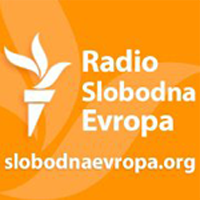
Sorry, this entry is only available in srpski.


Sorry, this entry is only available in srpski.

Sorry, this entry is only available in srpski.
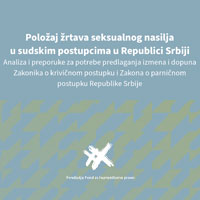
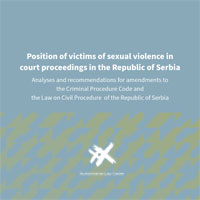 Analyses and recommendations for amendments to the Criminal Procedure Code and the Law on Civil Procedure of the Republic of Serbia
Analyses and recommendations for amendments to the Criminal Procedure Code and the Law on Civil Procedure of the Republic of Serbia
Through decades of monitoring and analyzing war crimes trials in Serbia, the Humanitarian Law Center (HLC) has identified shortcomings in the normative framework concerning the support and protection of witnesses and victims in criminal proceedings, particularly in cases involving sexual violence in wartime. These gaps and inadequate legal solutions, as well as certain inconsistencies with international standards, were confirmed through a consultative process conducted by the HLC to examine the rights and position of sexual violence victims in judicial proceedings.
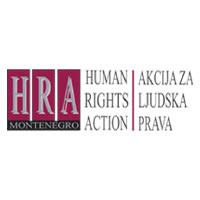
Sorry, this entry is only available in srpski.
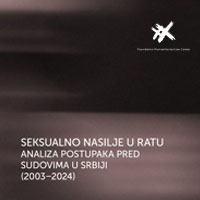
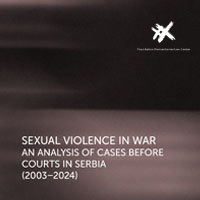 Since its establishment in 2003, the Public Office of the War Crimes Prosecutor (POWCP) of the Republic of Serbia has issued 106 indictments against individuals for crimes committed during the wars in the former Yugoslavia. Only 13 indictments filed include incidents of sexual violence, which indicates that in the previous practice of the domestic judiciary, sexual violence was rarely prosecuted, and when prosecuted it was most often considered as a war crime that occurs alongside murder and other physical violence. Considering the prevalence of rape and other forms of sexual violence in armed conflicts in the former Yugoslavia, it is clear that the domestic judiciary has not paid due attention to these crimes.
Since its establishment in 2003, the Public Office of the War Crimes Prosecutor (POWCP) of the Republic of Serbia has issued 106 indictments against individuals for crimes committed during the wars in the former Yugoslavia. Only 13 indictments filed include incidents of sexual violence, which indicates that in the previous practice of the domestic judiciary, sexual violence was rarely prosecuted, and when prosecuted it was most often considered as a war crime that occurs alongside murder and other physical violence. Considering the prevalence of rape and other forms of sexual violence in armed conflicts in the former Yugoslavia, it is clear that the domestic judiciary has not paid due attention to these crimes.
The prevalence of sexual violence was one of the reasons for the establishment of the International Criminal Tribunal for the former Yugoslavia (ICTY), whose practice today represents a standard in prosecuting these crimes. More than a third of all those convicted before the ICTY have also been convicted of crimes of sexual violence. Nevertheless, although the work of the ICTY represents a milestone in the prosecution of sexual and gender-based violence in war, the achievements of that court have not been significantly incorporated into the work of the domestic judiciary.
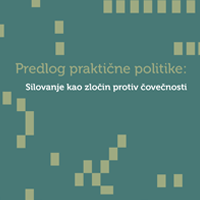
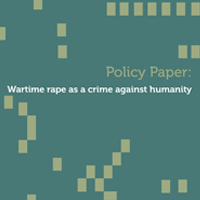 The practice of international criminal tribunals has set the standard for prosecuting rape and sexual violence in war. The International Criminal Tribunal for the former Yugoslavia (ICTY) and the International Criminal Tribunal for Rwanda (ICTR) have recognised that such acts, when committed in the context of a systematic and widespread attack against the civilian population, may qualify as crimes against humanity.
The practice of international criminal tribunals has set the standard for prosecuting rape and sexual violence in war. The International Criminal Tribunal for the former Yugoslavia (ICTY) and the International Criminal Tribunal for Rwanda (ICTR) have recognised that such acts, when committed in the context of a systematic and widespread attack against the civilian population, may qualify as crimes against humanity.
A crime against humanity is a criminal offence that includes serious acts such as murder, persecution, torture, rape, etc, committed as part of a systematic and widespread attack on the civilian population. Unlike war crimes, crimes against humanity can also be committed in peacetime. To date, no person has been charged with this crime before Serbian courts.
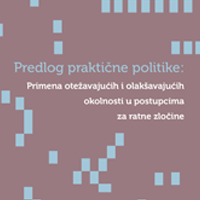
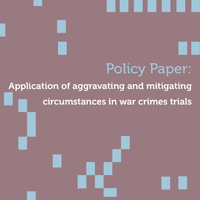 By August 2024, 68 war crimes proceedings were conducted and finalised before the Higher Court in Belgrade as a court of first instance and the Court of Appeal in Belgrade as a court of second instance. In these proceedings, 95 persons were sentenced to prison terms ranging from one to twenty years for war crimes against civilians and war crimes against prisoners of war. The purpose of war crimes trials is to establish a complete factual picture in order to individualise the guilt of persons charged with criminal offences, adequately punish those found guilty, and achieve justice for victims. Therefore, identifying aggravating and mitigating circumstances for deciding the length of prison sentences proves to be particularly significant.
By August 2024, 68 war crimes proceedings were conducted and finalised before the Higher Court in Belgrade as a court of first instance and the Court of Appeal in Belgrade as a court of second instance. In these proceedings, 95 persons were sentenced to prison terms ranging from one to twenty years for war crimes against civilians and war crimes against prisoners of war. The purpose of war crimes trials is to establish a complete factual picture in order to individualise the guilt of persons charged with criminal offences, adequately punish those found guilty, and achieve justice for victims. Therefore, identifying aggravating and mitigating circumstances for deciding the length of prison sentences proves to be particularly significant.
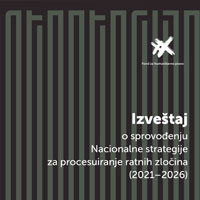
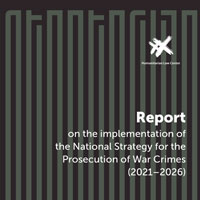 The National Strategy for the Prosecution of War Crimes for the Period 2021–2026 was adopted in October 2021.1 In addition to monitoring and analysis of war crimes trials in Serbia, the HLC monitors and reports on the state of implementation of the National Strategy and its achievements in order to assist in the qualitative and quantitative assessment of the measures and activities set forth in the Strategy.
The National Strategy for the Prosecution of War Crimes for the Period 2021–2026 was adopted in October 2021.1 In addition to monitoring and analysis of war crimes trials in Serbia, the HLC monitors and reports on the state of implementation of the National Strategy and its achievements in order to assist in the qualitative and quantitative assessment of the measures and activities set forth in the Strategy.
This report on the implementation of the National Strategy (2021–2026) covers the period from mid-October 2021 to 1 May 2024 and is the continuation of the reports published by the HLC during the implementation of the (first) National Strategy for the Prosecution of war Crimes for the Period 2016–2020.

Sorry, this entry is only available in srpski.
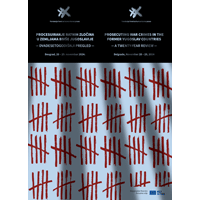
 The Humanitarian Law Center is organizing an international conference titled “Prosecuting War Crimes in the Countries of the Former Yugoslavia – A Twenty-Year Review” to evaluate the results of the trials so far and provide concrete recommendations for improving these processes, especially in the area of prosecuting sexual war crimes and the position of victims in legal proceedings.
The Humanitarian Law Center is organizing an international conference titled “Prosecuting War Crimes in the Countries of the Former Yugoslavia – A Twenty-Year Review” to evaluate the results of the trials so far and provide concrete recommendations for improving these processes, especially in the area of prosecuting sexual war crimes and the position of victims in legal proceedings.
The societal repercussions of historical revisionism, the media’s glorification of convicted war criminals, and the relativization of judicially established facts will also be discussed during the conference.
This is the first conference in over a decade that brings together war crimes prosecutors, judges, ministry representatives, victims’ families, NGOs, and the media from the region for a discussion and analysis of the prosecution of war crimes in the courts of the countries of the former Yugoslavia. The organizer of the conference, the Humanitarian Law Center, is the only organization that has been continuously monitoring and analyzing war crimes trials in Serbia since the first trial.